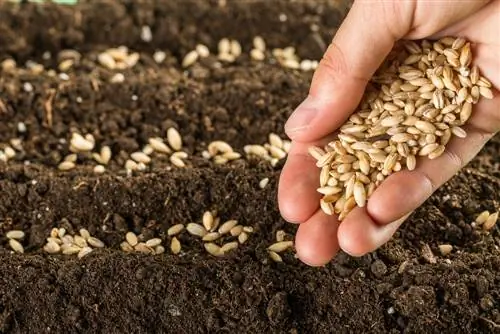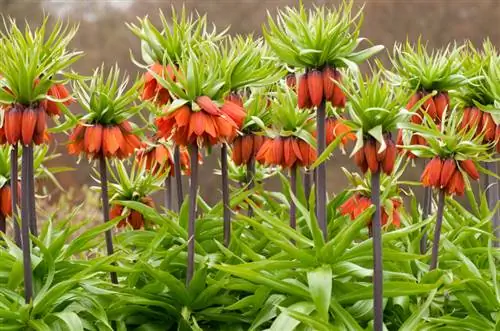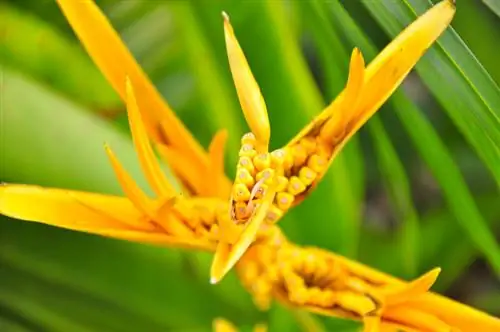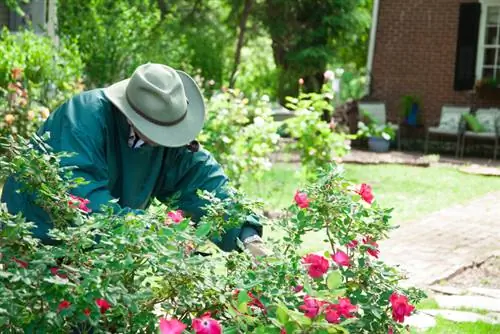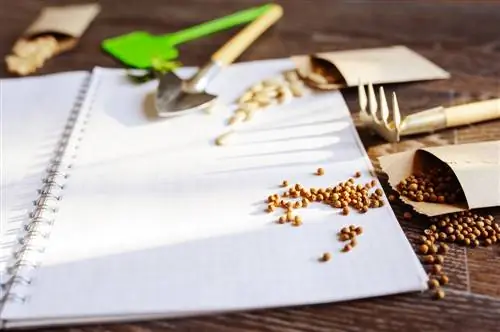- Author admin leonars@hobbygardeners.com.
- Public 2023-12-16 16:46.
- Last modified 2025-01-23 11:21.
The question of where our seeds come from, how they were bred and what they do in our vegetable and flower beds is a concern for more and more hobby gardeners. Quite rightly so, in our opinion, because anyone who follows the discussions in this regard for a while will quickly come to terms such as GMO-free seeds, old varieties, hybrid seeds and the company Monsanto, which has found itself in the negative headlines.
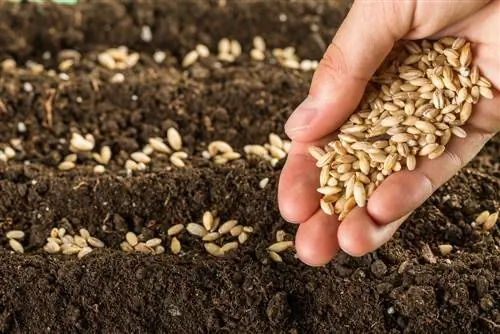
Where can I get non-GMO and organic seeds?
In order to obtain GMO-free and organic seeds for your own garden, we recommend purchasing from suppliers such as Arche Noah, Bingenheimer Saatgut, Vern, Grünertiger, Irina's Shop or Manfred Hans. These offer seed-resistant, ecologically bred plant varieties.
Just a quick reminder of what we have in mind when it comes to hybrid seed varieties, also known as hybrids: The different types are produced with great effort and methods close to genetic engineering, so that in the end the desired properties such as size and resistance are obtained through inbreeding, color and shape are achieved and are reinforced over several generations. Finally, two inbred lines have to be crossed with each other in order to end up with the first branch generation - called F1. What comes out of it?
Hybrid versus non-seed species
The plants grown in this way are particularly vigorous, look uniform, but are notable for their high yields with manageable losses. However, the “hybrid effect” has a decisive disadvantage: it fizzles out in the next generation, so that seeds obtained from your own harvest are practically no longer usable because the seed strength is missing. This is different with reusable seeds, which can be propagated using conventional methods such as insect pollination while retaining their variety-specific properties. The young plants grown with this are one hundred percent similar to their parent plants, not only in appearance and properties, but also in taste.
Where is the trend in seed production headed?
Clearly in the direction of industrialization since the beginning of the 20th century. Large companies have almost completely bought up the smaller plant breeding companies, so that today 75 percent of the seeds worldwide are produced and marketed by ten multinational corporations, five of which are from the chemical industry (!). The supply of non-seed varieties is decreasing more and more. Many types of vegetables are now only available as hybrids and this even applies to organic vegetables, which are quite expensive. Hobby gardener varieties are no longer developed at all, and are therefore completely identical to those for industrial agriculture - just bottled in smaller bags.
Official prevention of the use of non-seed varieties
As if all this weren't enough, the corporations have secured exclusive usage rights that prohibit reproduction, even if farmers want to sell or exchange seeds from their own harvest. The trade in seeds is controlled by the state, so that only industry-friendly and officially approved varieties may be placed on the market. With genetic engineering and terminator technologies, the industry has achieved that plants can no longer form germinable seeds (unfortunately the UN only banned this temporarily).
Seeds are common property
Says Dreschflegel e. V as one of the largest organic seed companies in Germany and motivates us to only use GMO-free seeds. However, even the very wide range of products in the in-house online shop cannot hide the fact that the so-called “old” varieties, which have been successfully bred in our home gardens for decades, are no longer permitted and therefore cannot be traded officially. Of course, this does not affect the fact that garden owners still have the authority to decide for themselves about the cultivation of the “forbidden plants” on their soil. Therefore, we would like to conclude with a few recommendations on this topic for the GMO-free purchase of clean organic seeds:
- Noah's Ark
- Bingenheimer Seeds
- Vern
- Green Tiger
- Irina's shop and
- Manfred Hans

